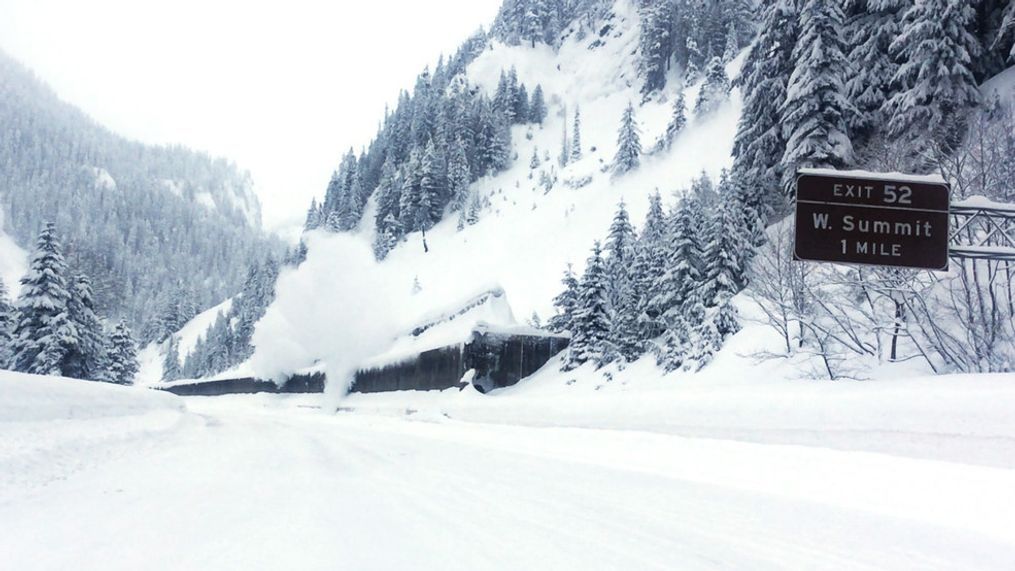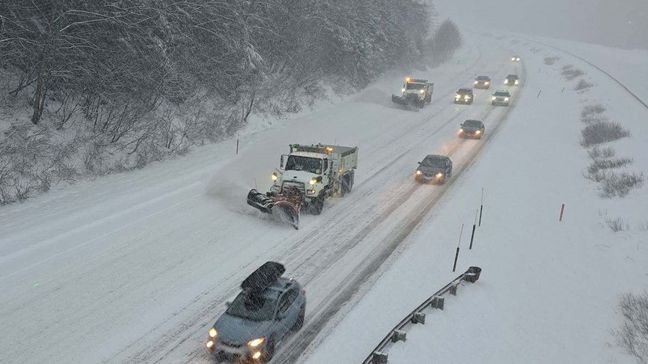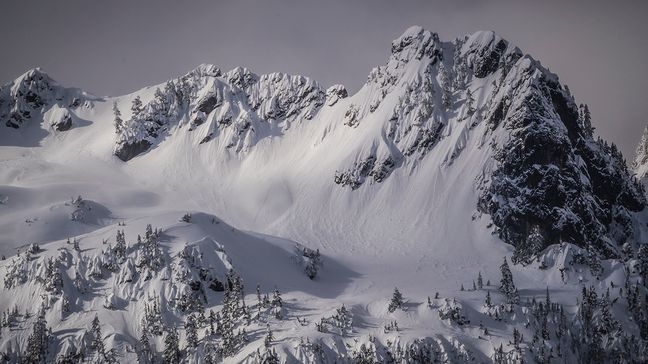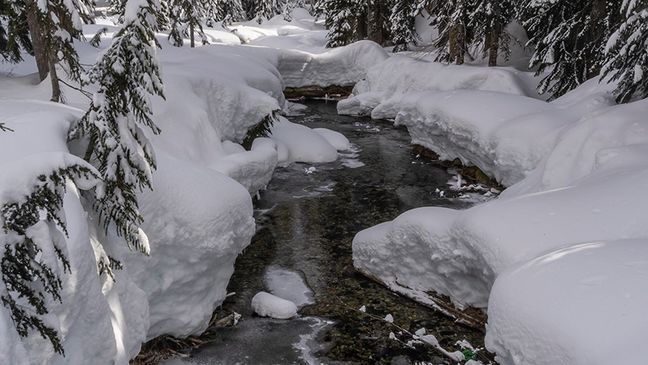Heavy snowfall in the Cascades this week to benefit Washington's overall snowpack
NEAR SNOQUALMIE PASS, Wash. — While the Washington State Department of Transportation (WSDOT) is busy monitoring the roads at Snoqualmie and Stevens Passes for the upcoming snowfall, experts say the storm will benefit the state's overall snowpack as we prepare for spring.
In a tweet on Wednesday, WSDOT warned of the deteriorating travel conditions saying, “there is a winter storm warning going into effect at 8 p.m. Wednesday into Thursday morning. We could see up to 14 inches of snow.”
They are advising that drivers will need to have traction tires or chains, and “travel will be difficult.”
WSDOT Spokesperson Meagan Lott said, "over the next 24 to 48 hours it's going to be a pretty challenging drive for those that are traveling over I-90 over Snoqualmie Pass, or even Stevens Pass because the storm is going to hit the Cascade mountain range,” Lott said.
Crews will be out working in the snowfall to clear roads, but too much snowfall will wear down their efforts.
"These late winter, early spring storms they have a tendency to come in really fast, drop a lot of snow and then leave," Lott said. "Our crews are out there, they're going to be plowing snow as much as possible. It's definitely going to still be challenging for drivers."
Lott said is comes down to driver safety, following traction requirements and not driving too fast for the weather conditions.
Avalanche control work was also done along US 2 near Stevens Pass on Tuesday.
“We remain on our winter schedule with crews available round the clock,” Lauren Loebsack, also with WSDOT, said of work at and near Stevens Pass. “We don’t foresee any major issues on US 2 over Stevens in the next 24 hours. There will be a little snow and freezing temps though and there will still be traction tire requirements depending on conditions. At this time is does not appear there will be a need for avalanche control tomorrow morning either.”
While all the snow could create travel issues at the passes, the snow is needed.
Nick Bond, the state’s climatologist, said snowpack in the Cascades is hovering around average, or slightly below average this year, “not severely so, 88% of normal, 89% of normal. We’re not looking for water supply restrictions in the summer ahead or anything like that.”
“I think there’s certainly going to be enough (snow) for travel issues and the department of transportation isn’t thrilled about the prospects of (issues) probably,” Bond said of the upcoming weather event.
As far as the snowpack is concerned, Bond said this snowfall looks to be beneficial, “It’ll just help with our snowpack. We tend to add to our snowpack through the month of March. It’s great to get some now because, by the time we get into April and May in most years, we don’t get much.”




